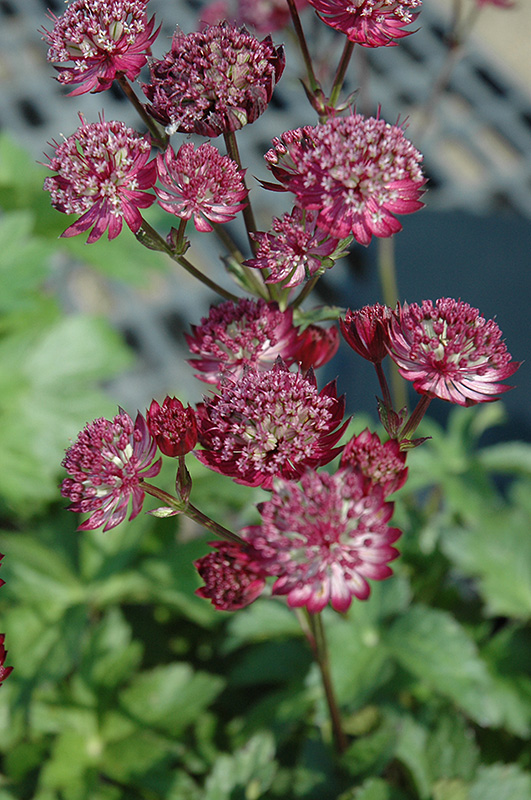Plant Finder
Star Of Fire Masterwort
Astrantia major 'Star Of Fire'

Star Of Fire Masterwort flowers
Star Of Fire Masterwort flowers
(Photo courtesy of NetPS Plant Finder)
Plant Height: 18 inches
Flower Height: 24 inches
Spacing: 14 inches
Sunlight:
![]()
![]()
Hardiness Zone: 4
Other Names: Hattie's Pincushion
Description:
Volumes of dark purple-red pincushion flowers with burgundy bracts, rise on dark stems, with a backdrop of rich green leaves; great on streambanks or in a moist border, doesn't like to dry out; cut back after flowering for a second flush
Ornamental Features
Star Of Fire Masterwort features airy cymes of deep purple pincushion flowers with red overtones and burgundy bracts rising above the foliage from early summer to early fall. The flowers are excellent for cutting. Its serrated lobed palmate leaves remain green in color throughout the season.
Landscape Attributes
Star Of Fire Masterwort is an open herbaceous perennial with an upright spreading habit of growth. Its relatively fine texture sets it apart from other garden plants with less refined foliage.
This plant will require occasional maintenance and upkeep, and should be cut back in late fall in preparation for winter. Gardeners should be aware of the following characteristic(s) that may warrant special consideration;
- Self-Seeding
Star Of Fire Masterwort is recommended for the following landscape applications;
- Mass Planting
- General Garden Use
- Bog Gardens
Planting & Growing
Star Of Fire Masterwort will grow to be about 18 inches tall at maturity extending to 24 inches tall with the flowers, with a spread of 18 inches. When grown in masses or used as a bedding plant, individual plants should be spaced approximately 14 inches apart. It grows at a medium rate, and under ideal conditions can be expected to live for approximately 15 years. As an herbaceous perennial, this plant will usually die back to the crown each winter, and will regrow from the base each spring. Be careful not to disturb the crown in late winter when it may not be readily seen!
This plant does best in full sun to partial shade. It is quite adaptable, prefering to grow in average to wet conditions, and will even tolerate some standing water. It is not particular as to soil pH, but grows best in rich soils. It is somewhat tolerant of urban pollution. This is a selected variety of a species not originally from North America. It can be propagated by division; however, as a cultivated variety, be aware that it may be subject to certain restrictions or prohibitions on propagation.
A NetPS Plant Finder tool
